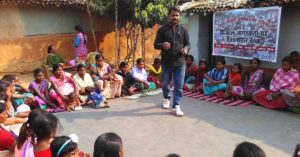From Pregnancy to Childbirth: How a Free Voice-Call Service Helps Women in India’s Urban Slums
Women in India’s urban slums often suffer from complications during pregnancy and childbirth that can have severe consequences for their health. Now, a free voice calling service is helping these women get the requisite information to avoid such circumstances, and live worry-free.
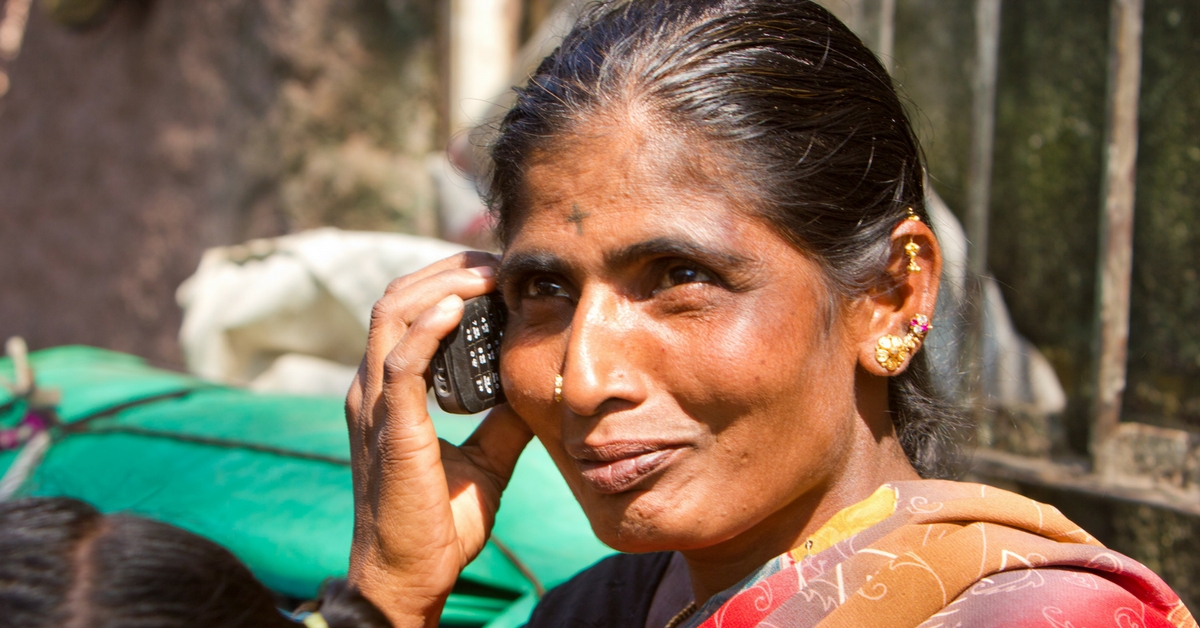
Women in India’s urban slums often suffer from complications during pregnancy and childbirth that can have severe consequences for their health. Now, a free voice calling service is helping these women get the requisite information to avoid such circumstances, and live worry-free.
Anwari Begum, in her early 20s, is already a mother of five. She has four sons, and a daughter who is just one-and-a-half months old. She lives in a tiny room with a mezzanine floor in Mumbai’s crowded Dharavi, said to be the biggest slum in the world. Her husband, Ajibur Rehman, is a zari craftsman, embellishing clothes with golden thread work. The couple moved to the Maximum City from Uttar Pradesh in search of better paying work. While life has otherwise been tough for the young woman, at least motherhood has been relatively easier with the recent birth of her daughter. She can now speak to a very special friend whenever she needs to check on something related to her health, feeding practices or immunisation. She can even find answers to “sensitive, personal issues” that she feels too shy to discuss with anyone else.
Anwari’s confidante is not an actual person but a friendly voice that she can hear every time she accesses the mMitra app on her mobile phone. Mitra, or friend, is indeed an appropriate name for the app that provides pregnant women with pertinent advice on healthcare, both in the prenatal and postnatal stages, in the slums of Mumbai, and elsewhere. Anwari smiles shyly as she relates how she has benefited from mMitra, “Both my husband and I listen to the messages on the mobile. I can’t read that well, but by regularly listening to the clips I have learnt a lot.”
The mMitra programme – created by ARMMAN, or Advancing Reduction in Mortality and Morbidity of Mothers, Children and Neonates, a non-government organisation – is focused on reducing maternal, neonatal, and child mortality and morbidity among the impoverished urban and rural communities. The initiative consists of a free mobile voice call service that provides culturally appropriate, comprehensive information, be it food and nutrition tips, timely prompts for regular doctor visits, or post child-birth care. Importantly, the voice calls are in the local dialect and specific to the woman’s gestational age or the age of the infant. For the mostly illiterate or semi-literate women who live in slum settlements like Dharavi, this service has been a great help.
From the comfort of their own home, they can instantly know more about their own needs during pregnancy as well as learn how best to care for their infant.
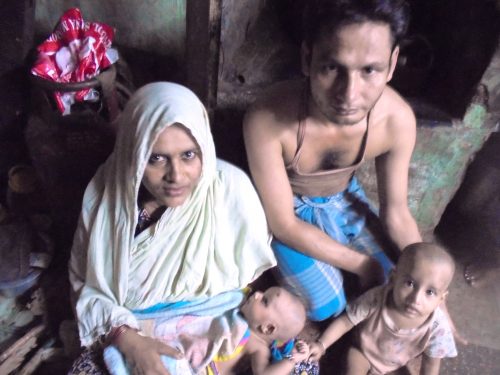
In a country like India, where nearly five women die every hour from complications developed during childbirth (as per the World Health Organization), such an intervention that combines technology with much-needed, relevant information has the capacity to work wonders. Quality healthcare during pregnancy and childbirth can prevent many maternal deaths, yet globally only 64 % women go in for the mandatory four antenatal care visits that are needed to spot and treat problems, as well as do necessary immunisations.
Fortunately, registering for mMitra is very simple. A primary mobile number, be it of the expectant woman or a relative at home, and a consent signature is all that is required. No monetary subscription is involved. There are two sources through which the women can be enrolled. Firstly, through health workers posted in the antenatal/postnatal clinics of municipal hospitals and maternity homes, who register women during their first check-up visit; and secondly, through community workers of the partner NGOs, who make home visits in slum communities.
For instance, in Dharavi, ARMMAN collaborates with Sant Gadge Maharaj Samajik Sanstha that works in the area of community development.
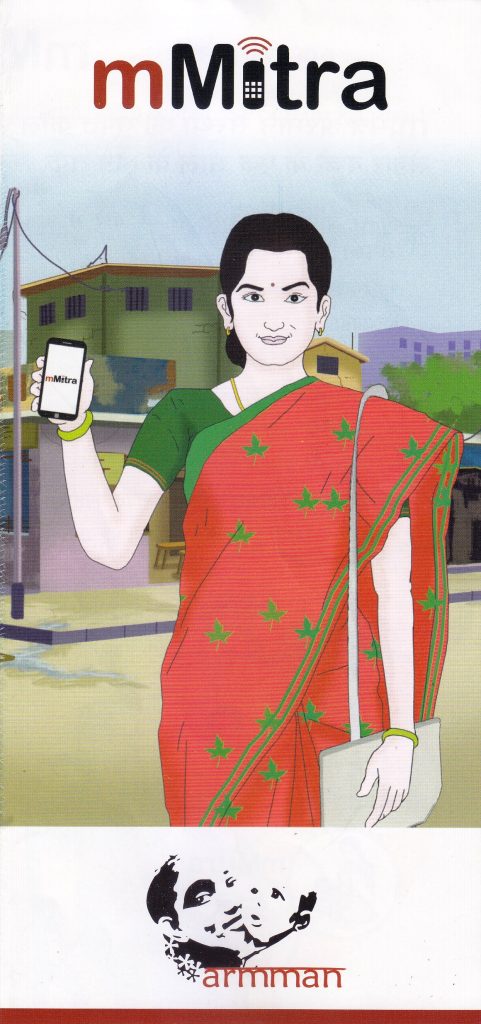
The messages on the app start with a jingle, and then the prepared text is read out. Calls are made usually between 7 AM and 9.30 AM, but they can be adjusted to the recipient’s preferred time. If the woman misses a call, she can call back on the toll-free number, and the service repeats the message the next day. Altogether, the registered woman gets 145 calls (between one-and-a-half to two minutes each). At the antenatal stage, it’s twice a week, and during postnatal care, once a week.
After the baby is born, the call starts with the message, “Congrats! Now you have to look after the baby,” followed by information on breast feeding, the vaccination schedule, and so on. In the first week, the service calls once a day; from the second week and up to three months, twice a week. From the fourth month to the child’s first birthday, the women get calls once a week to advise on nutrition, hygiene, etc. When the woman is expecting her second baby, the service repeats the schedule.
According to peer workers, known as sakhis, or friends, on average, there are three children per family in the slums.
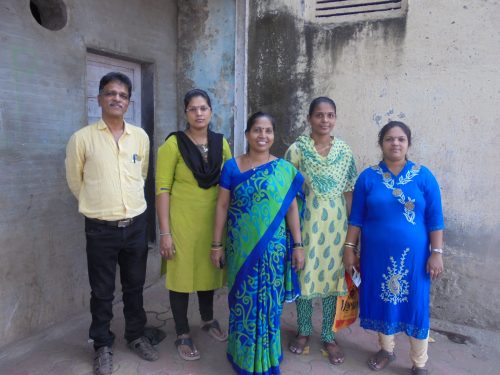
Like Anwari, Sajida (name changed), a mother of three, has benefitted immensely from connecting with mMitra. Her husband and she decided to limit their family after consulting their local sakhi and listening carefully to the service. Sajida courageously went in for sterilisation – despite her elders being unhappy – as she did not want any more children. Indeed, resistance from the elders is always a possibility, and even creates conflict at times. But the women are able to stick to their plans as they usually have their husband on their side. In fact, women reveal that often it’s their husband who actually reminds them to access the app.
Incidentally, a committed group of sakhis, constantly in touch with the women, is one of the reasons behind mMitra’s success. Asha Shinde, a sakhi, says, “Initially, the community women were quite suspicious, and reluctant to share their personal mobile numbers. Nowadays, they themselves contact us.” Shinde has worked with the programme since 2014. Other sakhis like Rohini Bhakar and Kalpana Pawar, too, have had the same experience. Their concerted efforts have resulted in the registration of 12,000 women over the last two years.
Bhakar reveals, “We had started out in a small way in 2013. Women were quite hesitant to share their lives with us in the beginning. But these days, they voluntarily inform us if a woman is pregnant, so that we can visit her. Their attitude has changed.”
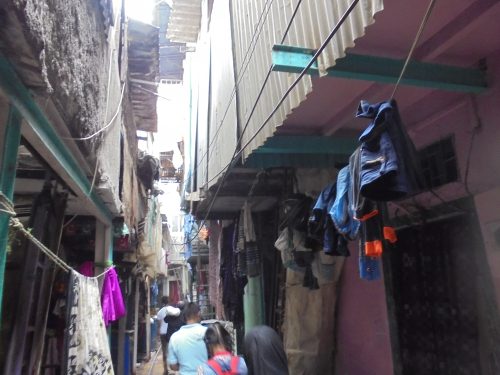
The brain behind ARMMAN is Dr. Aparna Hegde, Obstetricist and Gynaecologist, who conceptualised it while working at Mumbai’s Sion Hospital, an important tertiary facility. She gauged the gaps in available information and support for women in the reproductive age in poor communities. As the ARMMAN agenda asserts, “Every eight minutes, a mother dies in childbirth in India. For every maternal death in India, 20 more women suffer from lifelong health impairments resulting from complications during their pregnancies. The majority of these deaths are among women in the 15-29 age group, at the prime of their reproductive lives. The most tragic aspect of these deaths is that about 90 % of them are avoidable.”
The mMitra app ensures that women always have friendly counsel to turn to so that motherhood is healthy and happy.
You can contribute to helping make mMitra available to as many women as possible, by donating or volunteering with ARMMAN.
Featured Image is for representational purpose only. (Source: By Victorgrigas (Own work) [CC BY-SA 3.0], via Wikimedia Commons)
Like this story? Or have something to share? Write to us: [email protected], or connect with us on Facebook and Twitter.
NEW: Click here to get positive news on WhatsApp!
If you found our stories insightful, informative, or even just enjoyable, we invite you to consider making a voluntary payment to support the work we do at The Better India. Your contribution helps us continue producing quality content that educates, inspires, and drives positive change.
Choose one of the payment options below for your contribution-
By paying for the stories you value, you directly contribute to sustaining our efforts focused on making a difference in the world. Together, let's ensure that impactful stories continue to be told and shared, enriching lives and communities alike.
Thank you for your support. Here are some frequently asked questions you might find helpful to know why you are contributing?


This story made me
-
97
-
121
-
89
-
167




